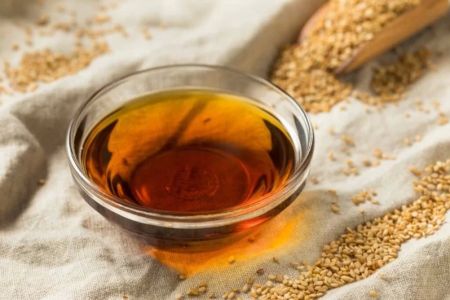What Kind of Tea Do They Serve at Chinese Restaurants?
When you walk into a traditional Chinese restaurant, one of the first things you'll likely notice is the warm cup of tea placed on your table. Tea is an essential part of Chinese dining culture, and it’s often served to complement the meal, aiding digestion and enhancing flavors. But what exactly is the tea that is commonly served in Chinese restaurants? In this article, we’ll explore the various types of tea you might encounter at a Chinese restaurant, their significance, and why they’re such an integral part of the dining experience.
1. The Most Common Teas Served at Chinese Restaurants
Chinese tea is renowned for its variety and rich history. There are many types of tea, but in Chinese restaurants in the U.S., you’ll most often encounter a few specific varieties. Let’s take a look at the most popular ones:
1.1 Jasmine Tea
Jasmine tea is probably the most common tea served in Chinese restaurants, particularly in the West. This aromatic tea is made by infusing green tea leaves with jasmine flowers. The result is a fragrant, soothing tea that pairs wonderfully with a wide range of Chinese dishes. Its delicate floral notes make it the perfect accompaniment to both lighter and heavier meals.
1.2 Oolong Tea
Another favorite at Chinese restaurants is oolong tea. This semi-fermented tea is somewhere between green and black tea, offering a flavor profile that’s both floral and slightly earthy. Oolong tea is often served with dim sum or more flavorful dishes, as its complex taste helps cleanse the palate between bites. It’s a staple in many traditional Chinese tea ceremonies and is valued for its ability to aid digestion after a heavy meal.
1.3 Pu-erh Tea
Pu-erh tea, a type of fermented tea from the Yunnan province, is less common in some Chinese restaurants but still widely enjoyed by tea aficionados. Known for its earthy and somewhat pungent flavor, pu-erh tea is often served after a large meal due to its believed digestive properties. Many Chinese restaurants offer pu-erh tea as a strong, refreshing post-meal drink.
1.4 Green Tea
Green tea is another tea that is commonly served at Chinese restaurants. Known for its light and refreshing taste, green tea can range from sweet to a bit grassy, depending on the variety. It’s a popular choice for restaurants that wish to serve a healthy, caffeine-conscious option. Green tea also has antioxidants, making it a popular choice among health-conscious diners.
2. Why Is Tea Served at Chinese Restaurants?
The practice of drinking tea in Chinese restaurants has both cultural and practical purposes. Let’s dive into the reasons why tea is served with meals and what it symbolizes in Chinese culture:
2.1 Enhancing Digestion
In Chinese culture, it’s believed that tea helps with digestion, especially after consuming heavy or greasy food. Many Chinese dishes, such as fried spring rolls or dumplings, are rich in oil, and tea is often served to balance out the richness of these dishes. Drinking tea, particularly after a large meal, is thought to aid the body’s digestive process, making it easier to break down fats and absorb nutrients.
2.2 Symbolizing Hospitality
Tea also serves as a symbol of hospitality. In Chinese tradition, offering tea to guests is an important way of showing respect and kindness. When you visit a Chinese restaurant, the act of serving tea reflects the culture’s emphasis on making guests feel welcome and comfortable. It’s a gesture of warmth and courtesy that extends beyond just the physical act of drinking tea.
2.3 Enhancing the Dining Experience
Tea is carefully chosen to complement the flavors of the food being served. For example, jasmine tea pairs beautifully with lighter dishes like steamed fish, while a stronger oolong tea can enhance the flavors of barbecued meats. The right tea can elevate the overall dining experience by providing a harmonious balance between the drink and the food.
3. How Tea Enhances the Flavor of Your Meal
The connection between tea and food in Chinese culture is much deeper than simply quenching thirst. The subtle flavors in different types of tea can complement the diverse flavors found in Chinese cuisine. Here’s how tea enhances the overall experience:
3.1 Flavor Cleansing
Chinese food is known for its bold, rich flavors, often with a combination of spicy, savory, and sweet elements. Tea, particularly oolong and green tea, helps cleanse the palate between bites. The refreshing qualities of tea help clear lingering flavors, ensuring that each bite tastes as fresh as the first. It’s especially helpful when indulging in meals with strong, complex spices like those found in Szechuan cuisine.
3.2 Balancing Richness
Many Chinese dishes are deep-fried or contain rich sauces. The slight bitterness of green tea or the complexity of oolong tea works to balance the richness of these foods. Tea, by cutting through the heaviness, makes the meal more enjoyable and less overwhelming to the senses.
4. How to Choose the Right Tea at a Chinese Restaurant
Choosing the right tea to pair with your meal can enhance your dining experience significantly. While most restaurants will serve a standard tea like jasmine or oolong, some diners may prefer a specific type based on their preferences or the dishes they’re ordering. Here’s a quick guide to help you choose:
- Light Dishes: For lighter dishes like steamed fish or tofu, a delicate jasmine or green tea would be a perfect match.
- Heavier Dishes: If you’re ordering fried rice, crispy duck, or other hearty meals, opt for an oolong or pu-erh tea to balance the richness of the dish.
- Spicy Food: If your meal is spicy, green tea or jasmine tea can help cool down the heat and refresh your palate.
5. Conclusion: Tea as a Gateway to the Heart of Chinese Dining
Tea is more than just a drink in Chinese culture; it’s an essential part of the meal experience. Whether it’s the fragrant jasmine tea that accompanies dim sum, or the robust pu-erh tea that pairs well with a savory hotpot, tea plays a vital role in balancing the flavors and aiding digestion. Next time you dine at a Chinese restaurant, take a moment to appreciate the tradition behind the tea being served—it’s not just a drink, but a harmonious companion to your meal.
For more information on Chinese food and tea pairings, check out our website at Chinese Food for expert recommendations and tips!


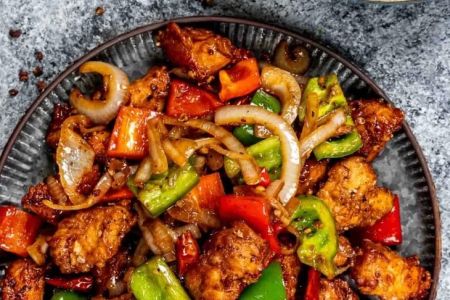
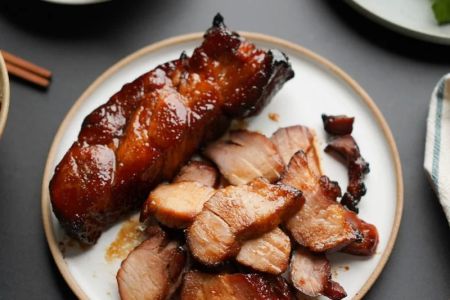
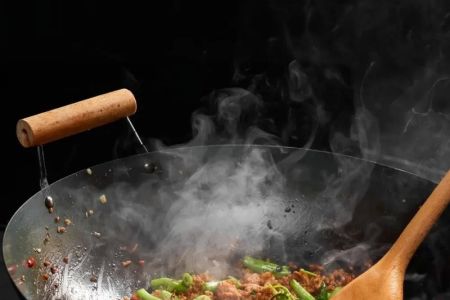
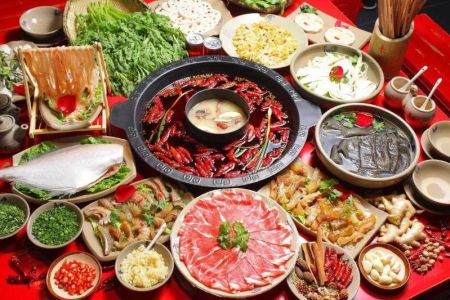
![Top Chinese Restaurants for Authentic Cantonese Cuisine in [Your City]](https://img.gochinarose.com/d33/2507/4157910400_450x300.webp)
